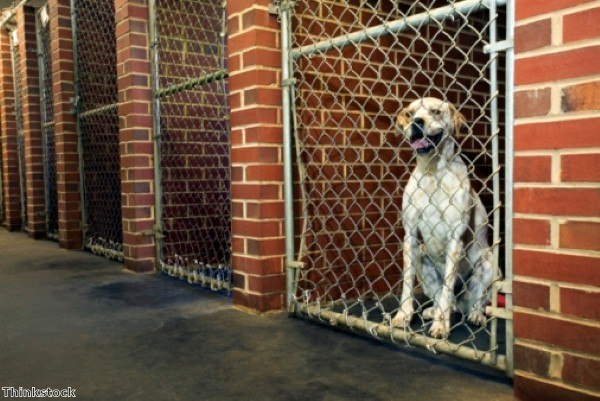 If you’re thinking about adding a new pup to your life, adopting a rescue dog is definitely something to think about. After all, pedigree is far from everything, and there are so many wonderful dogs in shelters across the country waiting for their forever homes.
If you’re thinking about adding a new pup to your life, adopting a rescue dog is definitely something to think about. After all, pedigree is far from everything, and there are so many wonderful dogs in shelters across the country waiting for their forever homes.
However, there are some particular challenges that come with rehoming rescue pets that you should be aware of, so that you can be fully prepared and get off on the right foot as soon as you get your new dog home.
Work with the shelter
Regardless of the size of the organisation, it’s very likely that the volunteers there have spent a significant amount of time getting to know all the dogs in their care, and working out what kind of home they will need. This is because a failed adoption can be deeply upsetting for all involved, so it’s worth taking the time to get it right.
Make sure the staff are aware of your lifestyle, including whether you have young children, work full time, and if you have a garden. This will help them narrow down your options, which can be very beneficial even for the hardcore animal-lover, as you may well end up wanting to take all the dogs you are introduced to home.
Be aware of baggage
Sad as it may be, it’s important to remember that some dogs may have had deeply unpleasant experiences before arriving at the shelter, whether through neglect or deliberate cruelty.
This means that a dog may appear disproportionately upset by apparently benign situations, and it’s important to know what their particular triggers are, and the best ways of helping them manage their distress.
Find out as much as possible about your new friend’s backstory, as this may help things make more sense. However, in some cases it may never be possible to find out exactly what has gone on, and all you can do is to move forward with plenty of love and reassurance.
Sometimes, rescue dogs will have health problems caused by past events, so it’s also very important to find out about all of these. It doesn’t mean that you shouldn’t adopt the dog, but you need to be sure that you are ready to take on the additional cost and emotional commitment of a pet with ongoing health problems.
Avoid overload
When your new dog comes home for the first time, it can be tempting to shower them with all the love and affection they have missed out on in the past. However, this can actually be quite stressful for the pooch, who will probably want a bit of quiet time to explore their new environment and rest. Stick to just the immediate family at first, so that your pup doesn’t feel threatened or overwhelmed. If you have children, make sure they understand that their new friend will need a bit of alone time, at least until they have settled in.
It can be a good idea to have a few irresistible treats on hand, just in case a very nervous dog needs coaxing out of a hiding place or reassuring about their new home. Bakers Rewards are a good option for this, as they are both small and tasty. A variety pack can be helpful as you work out your pooch’s individual preferences.
This said, it’s best not to bring your dog home the day before you have to go out to work, or leave them home alone for long periods. Many shelter dogs have suffered the pain of abandonment, and they may become upset if they suspect that this is happening again.
You should also make sure that your dog has a dedicated space, whether it’s a pet bed or just somewhere out of the way for them to lie down, as this can be very reassuring and make them feel at home.
For a rescue dog, moving into their new home can be an incredibly stressful time. However, if handled properly, it can be the first step of a truly fulfilling lifelong friendship, so it’s always worth persevering.
Written by: Hannah








